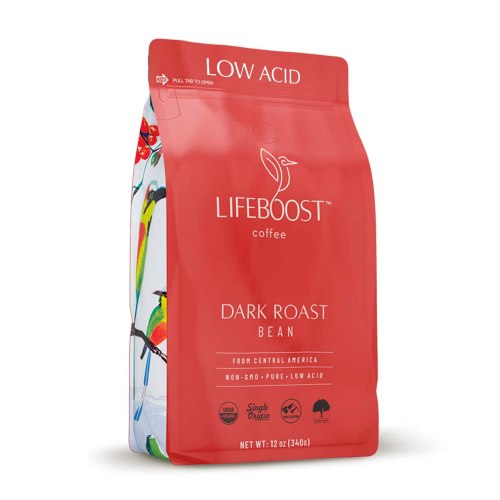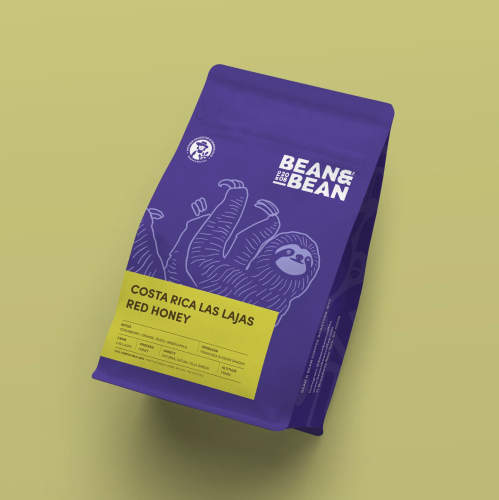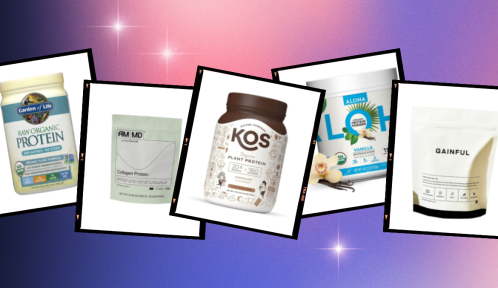Our editors independently select these products. Making a purchase through our links may earn Well+Good a commission
Throughout the dizzying highs and lows of 2022, one thing stayed constant: our collective love of coffee. Whether you’re an espresso elitist or a Starbucks loyalist, if you drank coffee this year, you helped contribute to a record-breaking year of coffee sales. In the United States alone, roughly 400 million cups of coffee were consumed every day this year (whew!).
Experts in This Article
Blue Zones expert and author of The Blue Zones Secrets for Longer Living
Brooklyn–based registered dietitian
sleep expert and clinical psychologist
In our never-ending search for the *perfect* morning cup, we spent this year tapping coffee experts for their advice on all things java. Read on to discover our favorite coffee tips of 2022.
The 9 most eye-opening things we learned about coffee this year
1. Coffee shouldn’t be the first thing you drink in the morning
While most of us depend on the energy-boosting properties of coffee to get us going in the a.m., doctors say that water, not coffee, should be the first thing we drink. The reason? Sleeping is dehydrating. After working all night to keep our blood pumping and organs running, our bodies are desperate to be replenished with H2O. Before using coffee to put pep in your step, fuel your body with the water it lost overnight.
“We lose almost a full liter of water every single night, so we wake up dehydrated,” says sleep expert and clinical psychologist Michael Breus, PhD. “Remember, folks, caffeine is a diuretic; it makes you want to urinate. So, not a good idea to do that—we want water to hydrate.”
2. How to establish a healthier relationship with caffeine
The saying “too much of a good thing can be a bad thing” certainly applies to coffee. The benefits of coffee aside, too much caffeine can cause anxiety, increased cortisol levels, and higher blood pressure. In episode 56 of the Well+Good Podcast, Ella Dove tapped neuroscientist Caroline Leaf, PhD, Nguyen Coffee Supply founder Sahra Nguyen, and registered dietitian Brigitte Zeitlin, RD, for advice on building a healthy relationship with caffeine.
Among other tips, staying under 300mg of caffeine a day, listening to your body’s cues, and drinking plenty of water throughout the day can keep your caffeine habits in check.
3. Ways to make coffee suited for sensitive tummies
Coffee is simultaneously a diuretic and laxative all at once; pair those properties with caffeine-induced anxiety, and you’ve got a recipe for an upset stomach. Adding a pinch of baking soda to your cup of coffee can zap tummy woes, according to dietitian Maddie Pasquariello, RD.
“Because baking soda is alkaline with a pH of eight, it can help bring the overall pH of your coffee up to a more neutral level [of seven], as well as help neutralize stomach acid in general,” says Pasquareillo.
For an ever gentler cup of coffee, try swapping your blonde roast for something darker. Dark roast beans are less acidic than other varieties, says Pasquariello. Check out our favorite low-acid dark roasts of 2022.

Lifeboost Dark Roast Coffee — $26.00
4. How the longest-living people in the world drink coffee
After studying the Blue Zones for years, we’ve come to several conclusions about how the longest-living people in the world eat, sleep, and exercise. According National Geographic journalist and longevity researcher Dan Buettner, we can gain valuable life-lengthening insight from their coffee habits, too.
Rather than down a cup of coffee at home for a quick zap of energy, people who live in the Blue Zones (Nicoya, Costa Rica; Ikaria, Greece; Sardinia, Italy; Okinawa, Japan; and Loma Linda, California) sip it throughout the day, primarily in social settings. By drinking it in smaller quantities, the longest-living people in the world reap the energizing benefits of java throughout the day—not all at once. Specific methods of coffee brewing utilized by the Blue Zones, like the Ikarian coffee method, pull more antioxidants from the beans in comparison to Western methods.
5. The deliciousness that is ‘honey coffee’
Speaking of the longest-living people on the planet, ‘honey coffee’ is the brew of choice for locals in the Blue Zone of Nicoya, Costa Rica. The name ‘honey coffee’ refers to the method in which the coffee fruit was processed before its beans were extracted. While most coffee methods involve removing the sugary inner layer of the coffee fruit prior to roasting, the honey coffee method ferments it, resulting in a naturally sweet bean yield.
Ready to try honey coffee? Check out our list of the best, boldest honey coffees on the market right now.

Bean & Bean Coffee Roasters, Costa Rica Las Lajas Red Honey — $26.00
6. All the health benefits of sparkling coffee
Let us introduce you to our favorite bubbly beverage: sparkling coffee. This concoction—made up of espresso, mineral water, orange zest, and basil—was created by coffee roaster and TikTok star Dan McLaughlin.
Besides being a unique way to drink your morning cup, sparkling coffee is great for your gut and heart. The mineral water aids in digestion via hydration and reduces blood pressure by providing a boost of magnesium and calcium. The added citrus is chock full of immunity-boosting vitamin C, too, making it a great flu-season sip.
Don’t knock it ‘til you try it!
7. The self-care power of a morning coffee routine
For some of us, brewing a pot of coffee is just another part of our morning routine. For others, it’s so much more. Laboring over a morning cup (or treating yourself to a coffee shop brew) that’s suited specifically to your unique tastes can be calming, reassuring, and provide a moment of mindfulness before the busy day ahead. Well+Good reporter Hannah Schneider asked nine different coffee enthusiasts about how their morning coffee routine positively impacts their life. “Watching the milk frother warm my milk before having to take care of everyone for the day…bliss,” says poet Maghan.
8. How to make coffee concentrate at home
If one of your New Year’s resolutions is to get your finances in order, consider swapping your daily Starbucks cold brew for an at-home iced coffee. Coffee concentrate is surprisingly easy to make at home with the aid of an Instant Pot. Simply mix 1 ¼ cups of your favorite ground coffee with 18 cups of water, lock it, seal it, and cook it on high pressure for five minutes. The result is a huge batch of super-concentrated coffee that will last you a full week. The $9 you save every day from brewing at home will stack up quickly.
9. The best, most delicious protein coffee recipes
This year, we learned that two eggs do *not* carry enough protein for a filling, energizing breakfast. In order to properly repair our hardworking muscles and stave off midday energy dips, dietitians recommend aiming for 25-40 grams of protein for breakfast. Incorporating protein into your morning cup might be the easiest way to hit your daily nutrition goals. Whether you’re devoted to dairy products or an oat milk fanatic, there’s a recipe for everyone on this list.
Sign up for the Well+Good SHOP Newsletter
Get exclusive deals on wellness, beauty, fitness, and food products that have been hand-picked by our editors.
Got it, you've been added to our email list.










